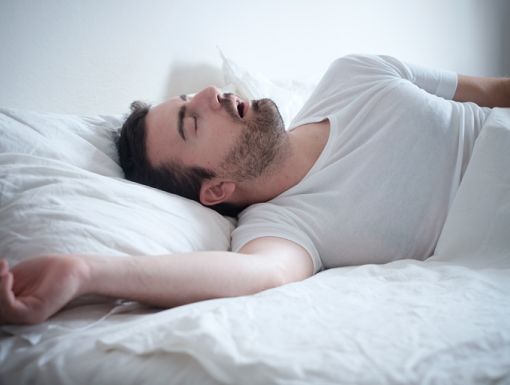
8 Ways to Get a Better Night’s Sleep
Many factors in today’s world contribute to an endless night of tossing and turning, from stress at work and responsibilities with family to sudden illness. Although some uncontrollable, there are ways to increase your chances of hitting seven to eight hours each night.
For those in need of a better night’s rest, adopt these eight simple habits:
- Timing matters: Try your best to wake up at the same time every day, even on those cherished days off. Seeing bright light in the morning is the main way our internal clock (i.e. circadian rhythm) determines when our brains and bodies are primed for deep sleep and when we become alert in the morning.
- Exercise regularly: Having a workout schedule is not only great for your body, but also for your sleep. Yoga or gentle mind-body exercises are great before bed to help you relax, but rigorous exercise should be done at least two hours before bedtime to allow your body time to return to its resting state.
- Food can hurt your sleep: Eating a heavy meal late at night will overload your digestive system and make it harder to sleep easily. Avoid foods that aggravate acid reflux or heartburn, because acid production is highest around midnight. It’s best to eat a light dinner and avoid eating one to two hours before bedtime.
- Avoid caffeine after breakfast: Most people love a morning cup of coffee to start the day. But the effects of caffeine can last much longer than we realize -- up to 12 hours. That’s enough to throw off a light sleeper. So, that morning cup of coffee is OK, but once the clock hits 10 a.m., it's best to avoid any further doses of caffeine.
- Power down: Lowering the lights in your home two hours before bedtime will signal your brain to produce melatonin, which ultimately leads to a better night’s sleep. And try to turn off TVs, computers and additional electronics one hour before bed. Studies have shown that because our brains are so attuned to those hits of dopamine we get from our phones all day long, just the mere presence of a cell phone in the bedroom can disrupt sleep. Consider buying an alarm clock instead of using your cell phone to wake you up in the morning.
- Sleeping posture matters: Whether sleeping on your back or side, it’s important to keep your head and neck in line with the center of your body. Avoid sleeping on your stomach. It flattens the natural curve of the body, which will lead to lower back pain and a long night.
- Make sleeping pills a short-term solution: These medications are often ineffective, can have side effects, can become habit-forming, and may even make insomnia worse over time.
- Know the right time to see your doctor: If sleepless nights have lasted a month or longer, it’s time to see your doctor to discuss more focused treatments (such as cognitive therapy for insomnia). And if you have been told you snore, subtle trouble breathing in your sleep may be the reason you wake up so often. About 30% of patients with chronic insomnia have undiagnosed sleep apnea.
Good sleeping patterns are extremely important. They provide us with the fuel needed to start the day and accomplish our goals.
Occasional sleepless nights are common and usually self-limited. Avoid common mistakes that can turn the occasional bad night into a chronic condition: going to bed before you are sleepy to try to get more sleep, lying in bed awake and frustrated, sleeping in late to catch up on sleep, using caffeinated beverages to keep you awake during the day, taking naps in the afternoon or evening, or catastrophizing about how terrible it will be if you don’t get a good night’s sleep tonight.
Start following these simple habits and get ready for a good night’s sleep!
Learn more about treatment of sleep disorders at Ochsner.



